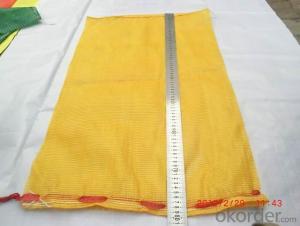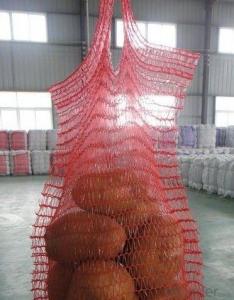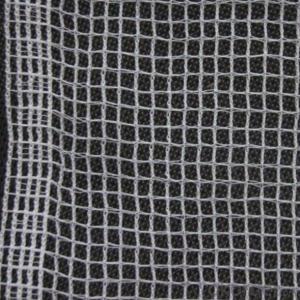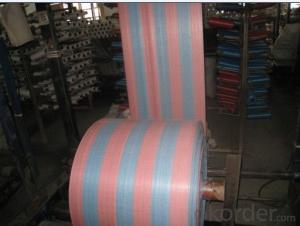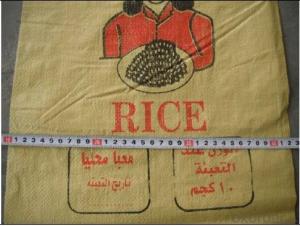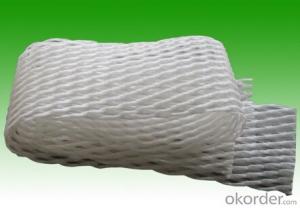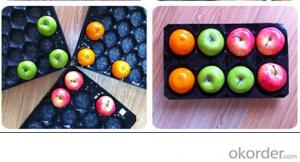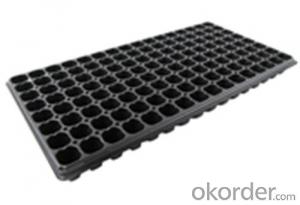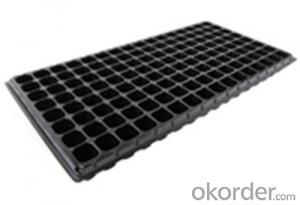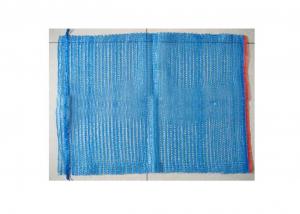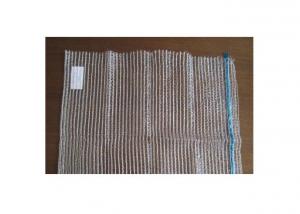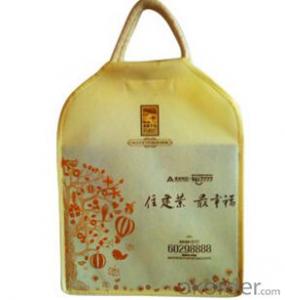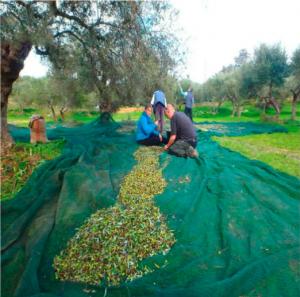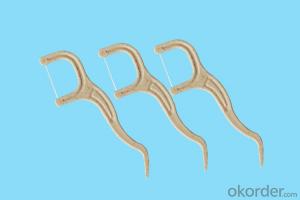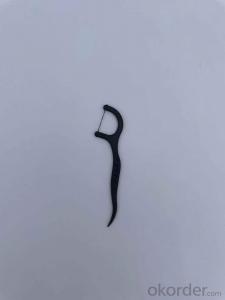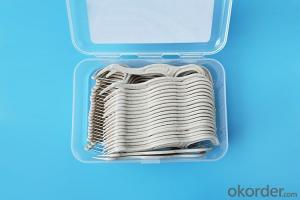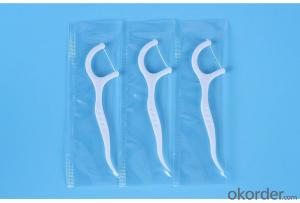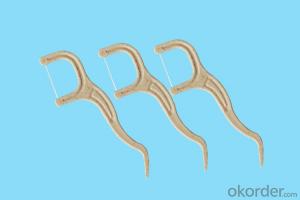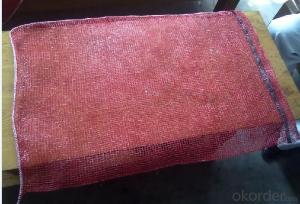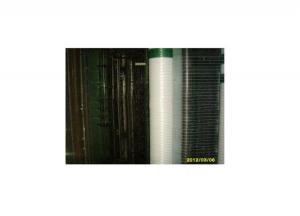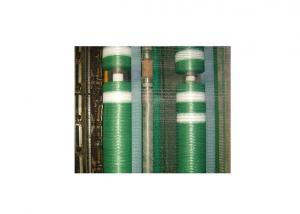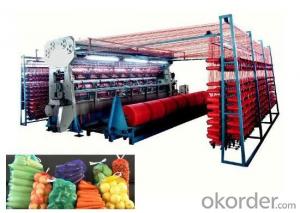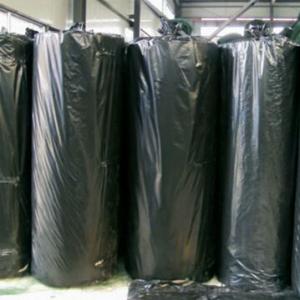Mesh bag for vegetables 50x80cm leno bag
- Loading Port:
- China Main Port
- Payment Terms:
- TT OR LC
- Min Order Qty:
- -
- Supply Capability:
- -
OKorder Service Pledge
OKorder Financial Service
You Might Also Like
1.What is your main products ?
Our main products are made from PE ,PP etc and could be used for agriculture and construction ,etc .
2.What is your payment term ?
We could accept TT ,LC.
3.What is your delivery time ?
The delivery time is around 30days per container, sometimes we have stocks .
Mesh Bag for vegetable and fruits .
It is weaved by High-density polyethylene (HDPE/PP), used as packing vegetable and fruit, such as onion, carrot, garlic, cabbage, lemon, pecans, etc.
Based on order, other weaves are also available.
Specifications:
Material : PE/PP
Weight: 17g/bag,18g/bag,22g/bag, any weight as demands.
Size: 50×80CM, 40×60CM,42X60CM,45×75CM, any size as demands.
Feature:
1) Top: hemmed /with drawstring or without handle is available
2) Bottom: sealed., single /double folded ,single.double
3) Capacity:bags with or without drawstring for packed weight from 1kg to 55kg
Packing: 2000pcs/bale,3000pcs/bale,6000pcs/bale,Or according your requests. Container capacity: 12tons/20GP, 23tons/40GP, 25tons/40HQ.
Application:used as packing vegetable and fruit, such as onion, carrot, garlic, cabbage, lemon, pecans, etc.
- Q:Can ground cover be used to create a rock garden?
- Yes, ground cover can be used to create a rock garden. Ground cover plants can be planted between rocks to fill in the gaps and create a visually appealing garden. They can also help control erosion and suppress weed growth in a rock garden.
- Q:How does ground cover affect the pH of the soil?
- Ground cover can have a significant impact on the pH of the soil. Certain types of ground cover plants, such as mosses or acid-loving plants, can release organic acids that lower the pH of the soil, making it more acidic. On the other hand, other ground cover plants, like clovers or legumes, have the ability to fix nitrogen in the soil, which can increase the pH and make it more alkaline. Thus, the choice of ground cover can either raise or lower the pH of the soil depending on the specific plant species.
- Q:Can ground cover plants be used to improve soil organic matter content?
- Yes, ground cover plants can be used to improve soil organic matter content. Ground cover plants have the ability to add organic material to the soil through their fallen leaves, stems, and roots. As these plant materials decompose, they contribute to the overall organic matter content of the soil, enhancing its fertility, structure, and nutrient-holding capacity. Additionally, ground cover plants can also reduce soil erosion, conserve moisture, and suppress weed growth, further benefiting the soil health and organic matter content.
- Q:What types of plants are suitable for nursery trays?
- Various types of plants are suitable for nursery trays, including small annual flowers, herbs, vegetables, and even young shrubs or trees. These trays provide a controlled environment for germination and growth, making them ideal for starting seeds or propagating cuttings.
- Q:How are plastic nursery pots used in agriculture?
- Plastic nursery pots are widely used in agriculture for seedling propagation and plant cultivation. These pots provide a controlled environment for the growth of young plants, protecting them from harsh weather conditions and allowing them to develop strong root systems. The pots also facilitate easy transplanting as they prevent root disturbance and help in maintaining the soil structure. Moreover, plastic nursery pots are durable, cost-effective, and reusable, making them an essential tool for efficient and sustainable agricultural practices.
- Q:Can nursery trays be used for starting groundcover transplants?
- Yes, nursery trays can be used for starting groundcover transplants. Nursery trays provide a controlled environment for germinating seeds or starting small plants, making them suitable for starting groundcover transplants before transferring them to the ground.
- Q:Can ground cover plants be used to cover bare spots in lawns?
- Yes, ground cover plants can be used to cover bare spots in lawns. They not only provide an attractive alternative to bare soil, but they also help prevent erosion, inhibit weed growth, and add texture and color to the overall landscape.
- Q:Can agricultural plastic products be used in hydroponic systems?
- Yes, agricultural plastic products can indeed be used in hydroponic systems. These plastic products, such as grow bags, PVC pipes, and net pots, are commonly used to support and hold the plants in hydroponic setups. They provide stability, drainage, and protection to the root system, allowing plants to grow efficiently in nutrient-rich water solutions.
- Q:How does plastic netting help in plant support?
- Plastic netting helps in plant support by providing a strong and flexible structure for plants to grow against. It helps to keep the plants upright, preventing them from bending or breaking under their own weight or due to external factors such as wind or heavy rain. The netting also allows plants to grow through its openings, providing support to their stems and branches as they grow taller. Additionally, the netting helps to create a more organized and efficient garden space by keeping plants separated and preventing them from tangling or intertwining with each other.
- Q:Can agricultural plastic products be bio-based or biodegradable?
- Yes, agricultural plastic products can be bio-based or biodegradable. Bio-based plastics are made from renewable resources such as plants or other organic materials, reducing their reliance on fossil fuels. Biodegradable plastics, on the other hand, are designed to break down naturally over time, reducing their environmental impact. These options offer sustainable alternatives to traditional plastics in agricultural applications.
1. Manufacturer Overview |
|
|---|---|
| Location | |
| Year Established | |
| Annual Output Value | |
| Main Markets | |
| Company Certifications | |
2. Manufacturer Certificates |
|
|---|---|
| a) Certification Name | |
| Range | |
| Reference | |
| Validity Period | |
3. Manufacturer Capability |
|
|---|---|
| a)Trade Capacity | |
| Nearest Port | |
| Export Percentage | |
| No.of Employees in Trade Department | |
| Language Spoken: | |
| b)Factory Information | |
| Factory Size: | |
| No. of Production Lines | |
| Contract Manufacturing | |
| Product Price Range | |
Send your message to us
Mesh bag for vegetables 50x80cm leno bag
- Loading Port:
- China Main Port
- Payment Terms:
- TT OR LC
- Min Order Qty:
- -
- Supply Capability:
- -
OKorder Service Pledge
OKorder Financial Service
Similar products
New products
Hot products
Related keywords
